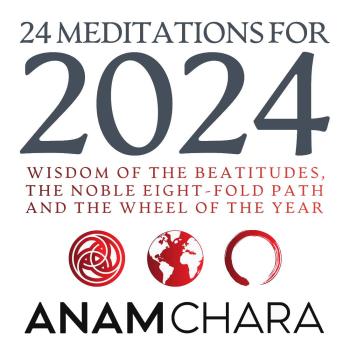Here’s a little quote from Teresa of Ávila’s classic book about prayer, The Way of Perfection:
Let us now return to speak of those souls I have mentioned who cannot practise recollection or tie down their minds to mental prayer or make a meditation. We must not talk to them of either of those two things— they will not hear of them; as a matter of fact, there are a great many people who seem terrified at the very name of contemplation or mental prayer.
The next time you run into someone who is hostile to Christian meditation and/or contemplative prayer (including centering prayer), keep this insight from St. Teresa in mind. Anti-contemplatives have apparently been a perennial problem in the life of the church.
Some people are called into the prayer of radical silence, and others, perhaps are not (or not yet) called to such practice — or, perhaps they are called to such prayer, and are resisting that call. It is not for us to judge.
But either way, sometimes such persons will offer judgment — plenty of it! — to those who do respond to the call of deep silence. Teresa’s advice: don’t even talk to such people about interior practice. Keep silent!
Whether we like it or not, talking about contemplation (and meditation) to those who either aren’t called to it, or not yet called to it, or actively resisting such a call, could simply stimulate a response of fear. There’s no use saying things that scare others — and no point in having to deal with that fear, which is often expressed as hostility.
Moral of the story: if you are called to silent prayer, be discreet about it. Mum’s the word.
One possible exception: if someone genuinely wants to learn about contemplation, naturally it would be kind to share your experience with them. Unfortunately, not only are many people afraid of contemplation, but sometimes this message (that contemplation/meditation is something to be feared) gets broadcasted in certain corners of Catholic media. So I’m always willing to talk to someone who truly and sincerely wants to learn about the history of silent prayer, and its longstanding place within the practice of Christian spirituality.
One final thought. Much of the fear associated with contemplation and meditation is related to confusion about interfaith dialogue and the possibility of integrating non-Christian spiritual practices (like forms of Buddhist meditation) into the Christian life of faith. The Vatican has issued several documents that warn against such integration.
But that is not what I am talking about here. I’m talking about practices that are deeply rooted in ancient Christian practices and the teachings of saints and other holy men and women, going back as far as the Desert Fathers and Mothers if not further.
It is sad when Christians become frightened of ancient Christian practices because they do not want to engage in non-Christian practices. What’s even worse is when Christian leaders, who should know better, actually promote that fear. But even when this is the case, St. Teresa’s common-sense advice still applies.
Enjoy reading this blog?
Click here to become a patron.















